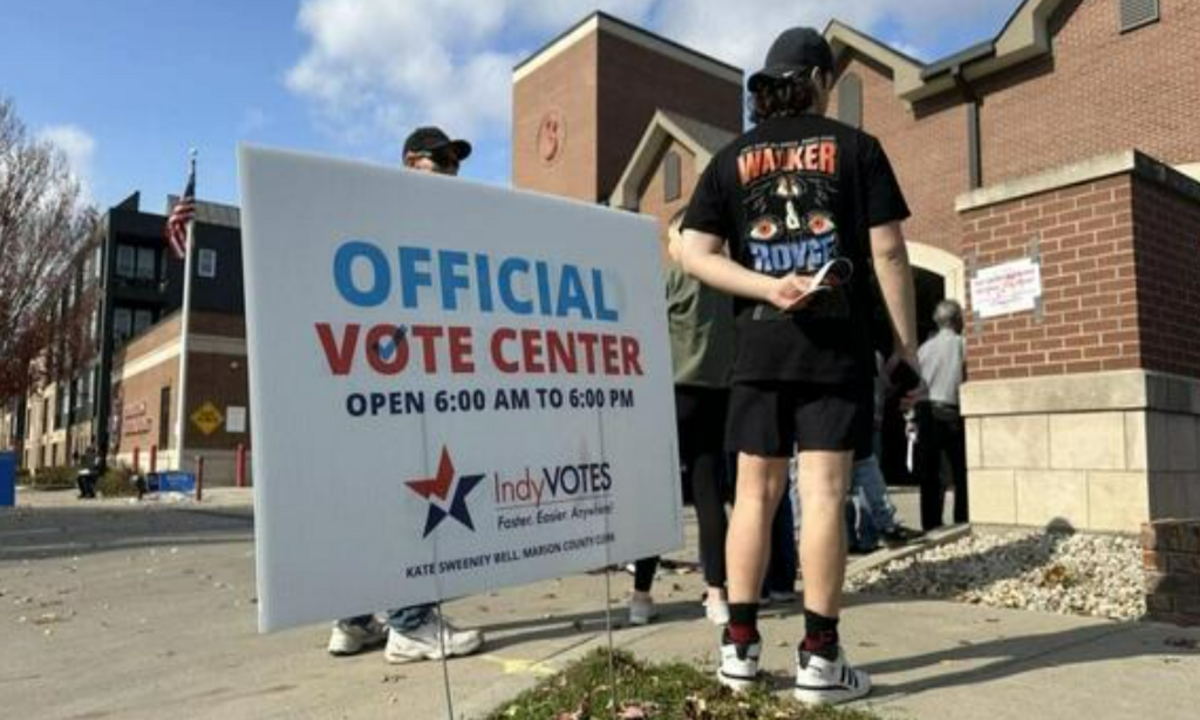Indiana lawmakers are considering two major Voting law changes that could impact how Hoosiers vote in upcoming elections.
One proposed bill seeks to cut the early in-person voting period in half, while another aims to close primary elections to unaffiliated voters. These bills are now headed to the Indiana Senate floor for further debate, sparking concerns among voters and election experts.
Early Voting Period May Be Cut in Half
Under current Indiana law, voters can cast their ballots in person for 28 days before an election. However, Senate Bill 284 proposes reducing this period to 14 days, citing staffing challenges and low voter turnout during the first two weeks of early voting.
State Senator Gary Byrne, the bill’s author, argued that staffing polling stations for an extended period is costly and inefficient, especially when most early voting occurs in the last two weeks. He believes the change would streamline the process and allow resources to be used more effectively.
However, voting rights advocates strongly oppose this move, arguing that it could lead to longer lines and discourage voter participation.
“Hoosier voters like early in-person voting,” said Julia Vaughn, leader of elections watchdog Common Cause Indiana. “In central Indiana, early voting is busy from the first day to the last day—people are already waiting in line for hours. We need more early voting, not less.”
Indiana has historically had one of the lowest voter turnout rates in the country. Critics of the bill fear that reducing early voting will further suppress participation, especially for elderly, disabled, and working-class voters who rely on early voting to cast their ballots.
A fiscal analysis by the Legislative Services Agency found that the reduction could save counties some money, but the savings would be minimal. Some lawmakers have suggested that any money saved should be redirected toward increasing the number of early voting locations to make up for the shorter time frame.
Closing Primaries to Independent Voters
Another proposed law, Senate Bill 201, would require voters to register with a political party if they want to vote in that party’s primary elections.
Currently, Indiana has an open primary system, meaning any registered voter can choose either a Democratic or Republican ballot without declaring a party affiliation. This bill would change that by automatically affiliating voters with a party based on their last primary vote and blocking independents from participating unless they register with a party in advance.
Supporters of the bill, like State Senator Mike Gaskill, argue that it prevents manipulation of primaries by people who don’t truly support a party but vote in their primaries to influence the outcome.
Critics, however, say this change disenfranchises independent voters, who make up a significant portion of Indiana’s electorate.
“Too many races in our state are decided in the primary because of gerrymandered districts,” said Vaughn. “If you lock independents out, you’re limiting their ability to have any say in who represents them.”
Election experts also warn that voters might be confused or frustrated when they find out they have been automatically assigned a party based on past voting habits.
Potential Impact on Future Elections
If these bills pass, they could significantly alter Indiana’s voting system by:
Reducing the number of early voting days, potentially leading to longer wait times.
Limiting who can vote in primaries, cutting off independent voters from the process.
Changing election dynamics, as parties would have more control over their primary voters.
Both bills have advanced past initial legislative hurdles and are now set for Senate debate. Lawmakers will have to weigh the efficiency concerns raised by bill supporters against the voter access concerns brought up by opponents.
What’s Next?
The Indiana Senate is expected to debate and vote on these proposals in the coming weeks. If approved, the bills would move to the Indiana House of Representatives for further discussion before becoming law.
Voters are encouraged to stay informed and reach out to their representatives to voice their opinions on these proposed changes.
Disclaimer—Our team has checked this article to ensure its accuracy and eliminate any misinformation. We are committed to providing clear and reliable information for our readers.


